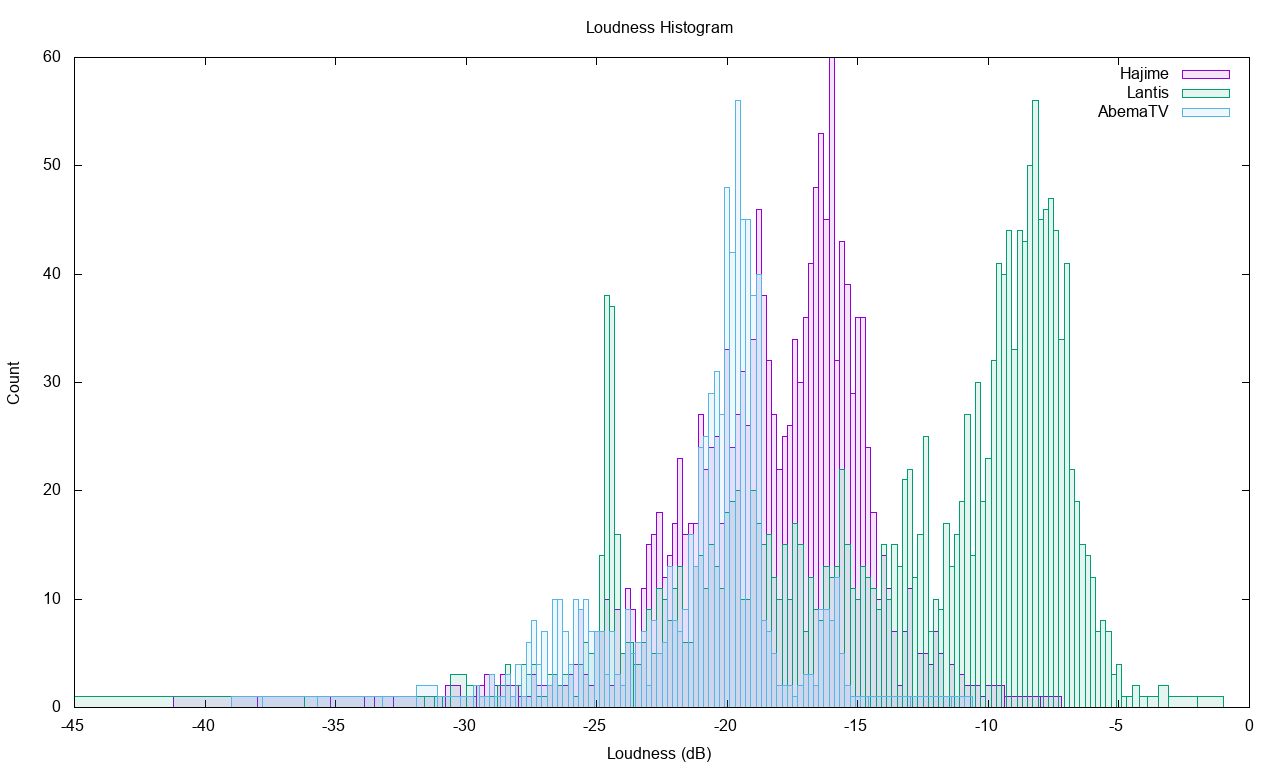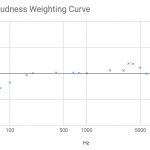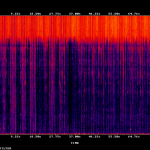We analyzed the sound pressure of the YouTube video in Japan .
On YouTube, loudness normalization is introduced. Loudness normalization on YouTube lowers the volume of the video whose sound pressure is too high, but does not raise the volume of the movie whose sound pressure is too low.
If you have lots of videos with too little sound pressure on YouTube, you can increase the volume played on YouTube by raising the sound pressure to the extent that sound quality is not impaired.
Contents
Question
How much movie is too small sound pressure on YouTube?
As mentioned above.
Does the sound pressure drop if the YouTube video length is long?
As the length increases, the probability that the peak of the waveform will increase by chance will increase. If you use a limiter, you can suppress those peaks, but if you do not use a limiter, the sound pressure may decrease as the length increases.
From this, if you examine the relationship between length and loudness, it seems to be a material to judge whether the limiter is used or not. There are other factors related to length and loudness, so we can not make a judgment alone, but once we examine the relationship between length and sound pressure.
Analysis target video
A. Japan's Top YouTuber
Almost all videos of "Hajime" channel
B. Japanese music channels
Almost all videos of "Lantis Channel" channel
C. Japanese TV station channel
Almost all videos of "AbemaTV Official YouTube" channel
* Videos before 2018/12/8
※ Because almost all of the movies have failed analysis
※ The video list is described in Appendix
Analysis measures
Loudness
It is an indicator of the sound pressure. Calculated with ITU-R BS.1770-3.
Loudness Range
It is an indicator of dynamic range. We calculated and calculated the window length and overlap length of EBU TECH 3342. Window length 0.4 s, overlap length 0.3 s.
Analysis Result
Loudness
Loudness histogram
Loudness cumulative density distribution
Loudness time series
Loudness Range
Loudness range histogram
Loudness range cumulative density distribution
Loudness range time series
Relationship between loudness and loudness range
Loudness vs Loudness range scatter plot
Loudness vs. Loudness average and standard deviation
Length
Length Histogram
Length cumulative density distribution
Length time series
Relationship between length and loudness
Length vs Loudness Scatter plot
Length vs Loudness average and standard deviation
Discussion
How much movie is too small sound pressure on YouTube?
Looking at "Loudness cumulative density distribution", except for "Lantis", the loudness of 90% or more of the video is -14 dB or less.
Since the loudness calculation formula used this time is different from that of YouTube, I can not show the line that loudness normalization is applied any more, but if I refer here , I think that -14 dB is sufficiently small, so sound pressure other than Lantis If you raise it, there seems to be a possibility that the volume at the time of playing on YouTube will rise.
Does the sound pressure drop if the YouTube video length is long?
According to "Loudness vs Length Average and Standard Deviation", such a fact is unlikely.
Appendix
YouTube video analysis result in Japan (tsv)
Summary
I analyzed the sound pressure of the YouTube video in Japan.




















